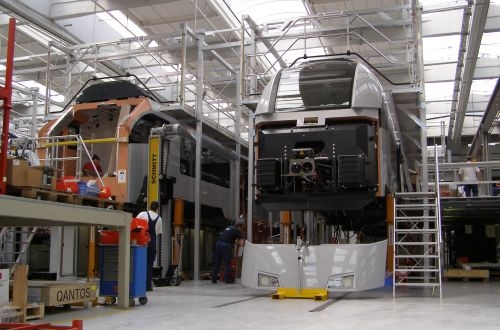Growth was fuelled by a 56% increase in orders for new trains, locomotives and components to €11.7bn. Exports topped €6bn while domestic demand increased to €5.6bn.
However, the VDB says the long delays in the certification of rolling stock had serious financial consequences for its members last year. "In the first half of 2013 we were still suffering under the approval jams," says the VDB's president Mr Michael Clausecker. "Thanks to the transitional regime set by the Federal Ministry of Transport which came into force in late June 2013, the situation has now changed. Approval procedures have been simplified and accelerated step-by-step under the new licensing regime."
The VDB is also unhappy about the current level of investment in railway infrastructure in Germany. It says that while overall sales of infrastructure equipment increased by 3.6% to €2.9bn in 2013, domestic sales stagnated at €1.8bn.
Clausecker says investment in the German rail network has been "blatantly underfunded" for years. The federal government provided €2.5bn annually for investment in the infrastructure, and although this was increased by €250m a year in 2013 and 2014, Clausecker says this is insufficient: "The quality and availability of our infrastructure increasingly lags behind in a European comparison as well as worldwide." The VDB wants the German government to increase annual infrastructure investment to at least €3.5bn.
The VDB is also calling on the government to increase funding for regional transport. CEO Mr Ronald Pörner says the €7.3bn allocated for 2014 must be increased by 2.5% a year to give state governments the necessary planning security.

